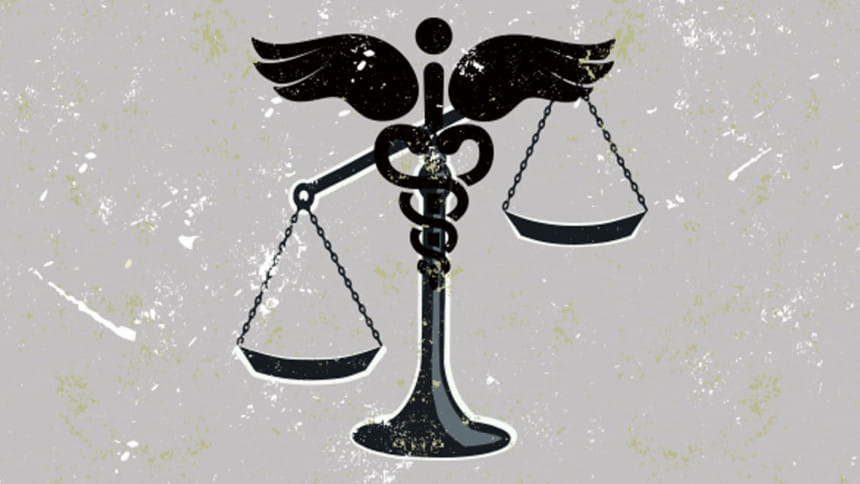Together, towards a fairer and healthier post-Covid-19 world

This World Health Day, the World Health Organization (WHO) is highlighting the opportunity we have to build a fairer and healthier post-Covid-19 world. For well over a year now, marginalised and disenfranchised communities across the world and in the South-East Asia Region have borne the brunt of the Covid-19 pandemic. In countries rich and poor, socioeconomic, political, educational and geographic factors, among others, have facilitated the spread of the SARS-CoV2 virus, impacting health outcomes and compounding inequalities. In our unequal world, preventable social and economic inequities continue to impede the right of everyone, everywhere, to achieve the highest attainable standard of physical and mental health—an injustice that we must not accept.
Covid-19 is just the latest disease to expose, exploit and exacerbate inequalities that negatively impact health and socioeconomic outcomes between and among vulnerable groups. In countries at all levels of income and development, health and illness follow a social gradient: The lower the socio-economic position, the worse the health and the poorer the access to health services of adequate quality. This is why the burden of communicable diseases in the Region such as TB, hepatitis and HIV is most acute among poor and disadvantaged populations, which has the tragic effect of entrenching these communities' poverty and marginalisation. And it is why noncommunicable diseases such as stroke and heart disease can be more commonly found among populations that are exposed to socially determined risk factors such as unplanned urbanisation and inadequate housing, which can contribute to household air pollution, food insecurity and malnutrition.
To remedy these and other health inequities, and to create a fairer and healthier post-pandemic world, WHO is calling on leaders in the health sector and beyond to make concerted efforts throughout the Covid-19 response and recovery to ensure that all people have living and working conditions that are conducive to lifelong health and well-being. Clean water and air, income and social protection, and food security among other environmental and public policy goods are vital to achieving this goal, and can best be secured through a "health-in-all-policies" approach that is gender-responsive and human rights-focused, and which advances the core principle of the 2030 Sustainable Development Agenda: Leave no one behind.
Health systems themselves have a critical role to play. Since 2014, the Region has pursued universal health coverage (UHC) as a Flagship Priority, with the aim of ensuring all people have access to the health services they need, when and where they need them, without financial hardship. And we have made real progress. Trend data from the Region's 2020 monitoring report show that health service coverage is now, on average, above 63 percent, as compared with 49 percent a decade ago. The density of health workers—around 70 percent of whom are women—continues to increase, with nine countries now above the first WHO threshold, compared with six in 2014.
But the fiscal constraints imposed by the pandemic threaten to stall or even reverse progress unless budgets are actively reprioritised and health is apportioned additional resources. New sources of revenue should be explored, for example increases in taxation on unhealthy products such as tobacco, alcohol and sugar-sweetened beverages. Value for money must continue to be improved, including through investments in primary healthcare and pro-poor initiatives that help mitigate the social determinants of health.
Crucially, communities must continue to be engaged and listened to—precisely as they have been throughout the Covid-19 response. Community outreach and empowerment, including through women-led organisations, can help identify the root causes of inequities and find localised solutions, and also enhance coordination between health and social services and target communities. The whole-of-government, whole-of-society approaches that countries have mobilised to respond to the pandemic provide a compelling model by which they can accelerate progress towards UHC, and with it, Sustainable Development Goal 3 and the wider Sustainable Development Agenda.
On the Region's onward journey, countries must continue to prioritise the collection of high-quality, timely and reliable health data. To adequately uncover inequities and enable policies that tackle them, health data should be collected on a disaggregated basis and analysed by key stratifiers for inequities, such as by sex, geography, income, education, or other pertinent metrics. The findings should then be fed into health policy-making and implementation. The Region's WHO-supported Health Information Platform, which provides an integrated database of country progress across a range of indicators, must continue to be leveraged to close gaps and eliminate disparities.
We can—and must—prevail. The emergence and spread of Covid-19 have laid bare the inequities that influence health outcomes between and among groups in the Region and across the world, and which make us all more health-insecure. We must reduce and ultimately end those inequities and accelerate towards UHC. All people have the right to achieve the highest attainable standard of physical and mental health. A fairer and healthier Region and world is possible. We must dare to be bold and achieve our vision.
Dr Poonam Khetrapal Singh is WHO South-East Asia Regional Director.

 For all latest news, follow The Daily Star's Google News channel.
For all latest news, follow The Daily Star's Google News channel. 



Comments